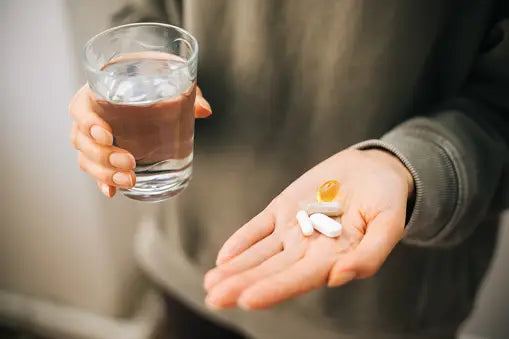Caffeine Rocks! Caffeine Inhibits New Fat Cell Formation
Table of Contents
Caffeine Rocks! Caffeine Inhibits New Fat Cell Formation
Caffeine is a plant alkaloid found in coffee, chocolate, and tea, widely consumed by humans worldwide. Caffeine has long been part of the pre-workout regimen for all gym advocates and professional athletes. Caffeine is well-known as a central nervous system stimulant. Studies have shown that caffeine can help an athlete perform better in a variety of different activities. It has been shown to be a potent ergogenic aid that is beneficial in athletic performance and training. Caffeine has been shown to increase speed and power output, improve the length an athlete can train, and assist the athlete in resisting fatigue. Caffeine has also been proven to stimulate the brain, which contributes to an athlete’s clearer thinking and ability to concentrate harder on the task at hand. Caffeine is not just good for improving sports performance but also increases energy metabolism according to new research.
Researchers examined if combining exercise and caffeine supplementation was more effective in promoting acute energy deficits and manipulations to substrate metabolism than exercise alone. Fourteen recreationally active participants completed a resting control trial, a placebo exercise trial, and a caffeine exercise trial, in which the subjects were given 2 x 3 mg/kg/bw of caffeine 90 min before and 30 min after exercise) in a randomized, double-blinded design. Trials were 4 hours in duration with 1 hour of rest, 1 hour of cycling at ~65 % power at VO2max or rest, and a 2-hour recovery. Two hours after exercise, participants were offered an ad libitum test meal where energy and macronutrient intake were recorded.
At the end of the study, exercise plus caffeine resulted in significantly greater energy expenditure and fat oxidation compared to exercise alone and Control group. Consequently, exercise+caffeine created a more significant energy deficit. Caffeine also led to training being perceived as less challenging and more enjoyable. Combining caffeine with exercise produces a greater energy deficit and the implications of this protocol for weight loss or maintenance over longer time periods in overweight/obese populations require further investigation. It does not end there for caffeine, new research reports that caffeine may also inhibit the formation of new fat cells.
Caffeine Inhibits New Fat Cell Formation

Several studies have shown that caffeine reduces body weight and adipose tissue weight in animal models. Moreover, caffeine has a variety of effects on metabolism, some of the mechanisms for weight loss include:
– It increases energy expenditure by inhibiting the phosphodiesterase- increasing intracellular cAMP levels. Lipolytic hormones such as thyroid and catecholamines have been shown to increase cellular cAMP, whereas anti-lipolytic hormones or fat storage hormones such as insulin, lower cAMP concentrations and decrease adipose tissue breakdown.
– increases lipolysis or fat burning
– results in reduced food intake
– caffeine suppresses intracellular lipid accumulation
A new study reported it BMB Reports found that caffeine can prevent new fat cell formation. Blocking of adipocyte differentiation or the process of cell differentiation by which preadipocytes become mature adipocytes. Blocking new fat cells for becoming mature fat cells is one of the anti-obesity strategies for the future. In recent years, many groups have explored novel compounds derived from natural resources for their effect on preventing new fat cell formation. Researchers found high dose caffeine in test tubes inhibits pre-adipocyte growth and differentiation, meaning caffeine inhibited new fat cells from maturing into mature fat cells. One of the key pathways in which caffeine inhibited new fat cells from being formed was AKT. It is a crucial enzyme in the insulin signaling pathway in adipocytes, AKT is needed for insulin-induced glucose metabolism, glucose transport, and adipocyte differentiation.
The results of the study demonstrated that caffeine significantly decreased the activation of AKT in a dose-dependent manner in adipocytes. The findings showed that caffeine actively suppressed the expression of critical genes involved in the creation of new fat cells or adipogenesis and reduced lipid storage in adipocytes. This is the first study to show that caffeine not only enhances fat utilization but now it may help preventing pre fat cells from becoming mature fat cells, so make sure your fat burner has caffeine!
Smith A (2002) Effects of caffeine on human behavior. Food Chem Toxicol 40, 1243-1255
Schubert, Matthew M., et al. “Caffeine consumption around an exercise bout: effects on energy expenditure, energy intake, and exercise enjoyment.” Journal of Applied Physiology 117.7 (2014): 745-754.
Nakabayashi H, Hashimoto T, Ashida H, Nishiumi S and Kanazawa K (2008) Inhibitory effects of caffeine and its metabolites on intracellular lipid accumulation in murine 3T3-L1 adipocytes. Biofactors 34, 293-302
|
MUSCLE MEDIA MAGAZINE for Women SPECIAL FAT LOSS ISSUE |

















